#DSAs
Explore tagged Tumblr posts
Text
Google Dynamic Search Ads Best Practices In Google Adds

Dynamic Search Ads campaign
One effective campaign type to increase query coverage and site traffic is Google Dynamic Search Ads (DSAs). However, your campaigns could suffer if you don’t know about them or don’t set them up properly.
What are Dynamic Search Ads?
One significant difference between Dynamic Search Ads and typical text advertising is that the former use your company’s website or product feed in place of keywords. Google then displays a dynamic, customized ad based on how visitors’ inquiries relate to the kind of goods on your website or feed. The campaign is still visible in Google search results and is difficult to tell apart from standard text advertisements. These kinds of advertisements are excellent for displaying dynamic material to searchers who are interested.
How are DSA campaigns different than traditional campaigns?
Dynamic ad copy headlines
A Dynamic Search Ads campaign differs from a standard text ad campaign in more ways than just keywords. Google dynamically generates the ad headline that is displayed when a DSA shows up on the search engine results page. A Dynamic Search Ads headline is created using data that is taken straight from the website or feed. The only thing that may be changed is the description line that advertisers still need to write for the advertisement. As you might expect, a search best practice is to have a headline that is specific, personalized, and about the product you are looking for. DSA can assist you in achieving this.
Pros & cons of DSA campaigns
Benefits of Dynamic Search Ads
The use of DSAs has many benefits. Here are three significant ones:
Close the gap in keyword coverage
Dynamic Search Ads give advertisers the ability to swiftly reduce the gap between product inventory and keyword coverage. Your website or a page feed with a list of every product can be crawled by the tool. In addition to helping you bridge the coverage gap, DSAs can appear on phrases that Google Ads would normally mark as having “Low Search Volume,” which prevents them from appearing.
Ad creation is much easier
Because the headlines are dynamically produced depending on the actual product that matches the system query, creating ads is considerably simpler. The dynamic headline is crucial since it will attract readers’ attention and increase the number of clicks on your website, even though you still need a unique description line.
Easy to set up
Dynamic Search Ads save you a great deal of effort when it comes to creating campaigns and keywords. Dynamic Search Ads are a simple strategy to set up, and with little effort, you may be operating on a variety of categories in a single day, even if you should already have a solid structure in place.
Cons
Conversely, there are some considerations to be aware of when utilizing DSA campaigns:
Not having full control
You must take reasonable steps to ensure that your structure is sound and that you have taken into account the proper negatives whenever possible, as you do not have complete control over the kind of queries that are matched to and served.
Google advise considering how your brand and the goods you sell might be mapped improperly by Google. You will get off to a good start if you consider this and also spend some time reviewing search keyword reports from text campaigns. You must, however, keep a careful eye on the search phrase reports throughout the initial few days. Regularly reviewing the search term reports for all campaigns, but Dynamic Search Ads in particular, is also advised. Later on, they will discuss another reason this is significant.
Not having headlines match the ad
Although dynamic headlines are fantastic, some advertisers may find them difficult to use. Dynamic Search Ads might not be the best option for you if you want complete control over the kind of messaging that appears alongside your brand. It’s uncommon to see a headline that isn’t perfect because they are created using the content from your website or products in the feed. You will, however, be able to observe directly which ad headline is displayed and which post-click landing page it leads to as you optimize and extract search term reports.
Low-performing search queries wasting budget
The last problem Google frequently observe, which applies to all text campaigns, is which product obtains the majority of visitors. Dynamic Search Ads can behave similarly to text campaigns, where a select few keywords receive the majority of traffic, and cause a few inquiries to consume your budget before the higher-converting products are searched for. This is just another explanation for the importance of structure and the necessity of negatives both prior to and following launch!
Dynamic Search Ads Definition
Dynamic Search Ads (DSAs) from Google dynamically generate headlines and landing pages based on your website’s content. Dynamic Search Ads match search queries with your website’s content instead of keywords.
How to set up DSA campaigns
It’s not too hard to set up DSAs in Google Ads. Create a text campaign in the same manner as you would any other campaign. A box labeled “Enable Dynamic Search Ads for this campaign” will appear at the bottom of the campaign settings, which you can click off as you go:
Prior to creating ad groups, you must enter the domain of your website. After that, you may select the “Dynamic Ad Targets” sub-tab within each ad group and add “URL Contains” as an extra auto-target.
A dynamic ad can be made after the individual ad group has been auto-targeted. All you have to do is write a statement in the creative description line that is no more than 80 characters long. It uses the site or feed content to dynamically generate the headlines and the post-click landing page.
How to optimize DSA campaigns
DSA campaigns can be optimized in a variety of ways, just like the majority of Google Ads campaigns. The most crucial step before discussing how to actually maximize DSA campaigns is to establish a structure before you even start one.
“Where am I missing coverage?” is a question you should consider as you assess your present SMS marketing and how well they fit your company. or Improve the experience where possible? “This is an excellent place to start.
Consider your product categories and their level of granularity while examining DSAs, just like you would with a standard text campaign layout. You will comprehend the proper format for DSA campaigns once you have established the number and complexity of your product categories.
Create a solid campaign structure
Because DSA campaigns use auto-targets, and auto-targets reside in ad groups, make sure your auto-targets are set up to reside in the most specialized ad groups. With a granular structure, you can have better control and management if each ad group represents a product or product line for a bigger category.
Make catch-all campaigns and properly map keywords
There are two motivations behind DSA campaigns:
To increase the coverage of your queries
To enhance your advertising experience
You should also think about mapping your inquiries with post-click landing sites and customized adverts. To enhance the mapping of specific user queries to campaigns and ad groups, it is crucial to incorporate negative keywords into various DSA ad groups and campaigns. Additionally, this will guarantee that your DSAs display the most relevant ad in response to the most relevant question.
If you haven’t already, you should make one last DSA campaign after you’ve finished laying out your campaign structure. The purpose of a “catch-all” DSA campaign is to capture any additional questions that do not show up in your category campaigns. This may occur for a variety of reasons. To make sure your entire website is covered, a “catch-all” campaign should be created to target “All Webpages” on your website. This “catch-all” campaign is mapping to either products that should be mapping to other category campaigns, as you can see by looking at search term statistics.
Mine for negatives
Its look for keywords to include in your text advertisements in addition to DSA drawbacks.
Continue adding negative keywords to enhance the user experience. Additionally, you want to consider including keywords in your text advertising. Seek out keywords that are converting well and/or have a high volume. In order to track changes in performance and competition on these keywords and not rely just on the DSA campaign, it is best to use these queries as genuine keywords in text campaigns. One of the most effective mining tools is DSA, which every advertising ought to utilize.
Highlight your promos and offers
You can concentrate on showing additional promotions and highlights for your company because DSAs generate headlines dynamically.
Do you offer deals, quick delivery, and free shipping?
Let the system generate the unique headlines for you, and be sure to emphasize this in your description line. Your product and conversion offers will be visible to users, improving their experience.
Utilize smart bidding
Are you afraid about artificial intelligence? Even though A.I. robots can be frightening, Google’s automatic bidding isn’t a reason to be afraid of AI. The Smart Bidding feature on Google has improved significantly over the past few years.
Through smart bidding, advertisers have improved back-end performance including cost-per-acquisition and return on ad spend. Google advise that all DSA campaigns, whether they are target-CPA or target-ROAS, be put on Smart Bidding. Set up tCPA bidding if you’re an advertising trying to increase your cost-per-acquisition. Google suggest using a tROAS bid strategy if you want to increase sales at a comparable or greater spend. Each of these will evaluate your past performance and conversion data and provide a target objective.
As a best practice, go ahead and create your objective based on what Google recommends and assess. If, after two weeks, you realize that you have accomplished your goal, change your target to aim higher! These two bid tactics have both been shown to be highly effective and can assist you in effectively scaling your campaigns.
Read more on Govindhtech.com
#SearchAds#GoogleAds#DynamicSearchAds#Googlesearch#DSAs#DSAcampaigns#AI#Google#searchqueries#News#Technews#Technology#Technologynews#Technologytrends#Govindhtech
0 notes
Text

"We are watching maybe the biggest example of why capitalism doesn't work and why these billionaires are actually often the least deserving people you know."
-Brennan Lee Mulligan
#politics#us politics#progressive#america#donald trump#united states#american politics#trump#capitalism#elon musk#musk#doge#maga#congress#joint session of congress#bureaucracy#bureaucrats#oligarchy#dropout#game changer#brennan lee mulligan#dsa#democratic socialists of america#democratic socialism#trump administration
3K notes
·
View notes
Text
Highly recommend joining a local political/community group that shares your ideals and values. If you don't know what you can do to help: don't worry, if you show up and be real, they'll tell you how you can help. And even if you can't help, at least you made their day brighter by showing up at all and reminded them (and yourself) that Yes, there are people out there who DO give a shit. Makes me feel a lot less freaked out about things.
#we've been to a DSA meeting and a Climate Justice meeting and both have healed me#I can't wait to toss our skills and resources into their pool#small efforts add up#volunteer#community#activism#you can do it!
147 notes
·
View notes
Text

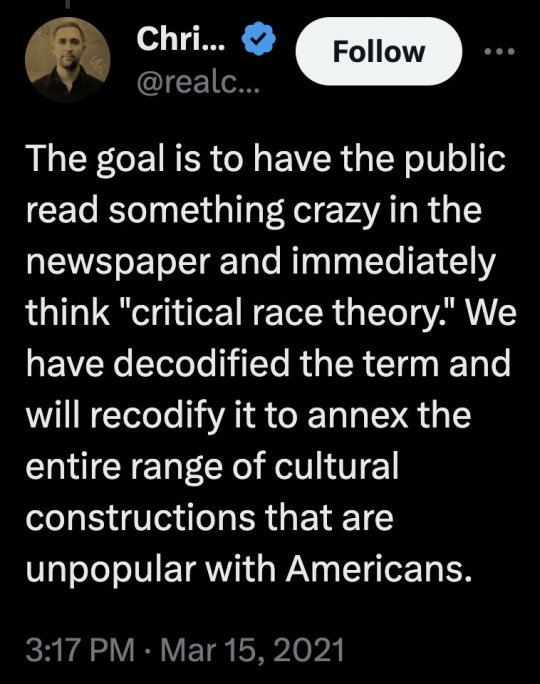
Literally the dude is pulling a Bond villain and explaining the evil plan beforehand.
And the press will still fall for it.
#Palestine#blm#israel#poc#woc#critical race theory#politics#journalism#democrats#dsa#Colonization#hamas#middle east#gop
1K notes
·
View notes
Text

Blitzo's fucking bag says HONSE i can't with this show 😂
#helluva blitzo#blitzø#blitzo#hellaverse#hellvaboss#helluva boss blitzo#helluva boss#helluva stolas#helluva boss stolas#helluva boss spoilers#helluva boss season 2#helluva boss stolitz#stolitz#stolas#stolas goetia#i fucking cant gfalksdfk;dsa#viviziepop
377 notes
·
View notes
Text



Battlemap I did for Splittermond, "Das Ende des Sommers", a German TTRPG
would you fight with me in a ship hull that's half flooded and frozen 🥺 full of sea creatures? no idea why I drew every single ice cube
get anchovied
+speedpaint
#mintybleh#splittermond#battle map#battlemap#ttrpg art#ttrpg community#ttrpg#pen and paper#dsa#das schwarze auge#artists on tumblr#dnd#dnd art#digital painting#clip studio paint#sketch#maps#dnd maps#ttrpg maps#commisions open#taking commisions#art commisions#speedpaint
141 notes
·
View notes
Text
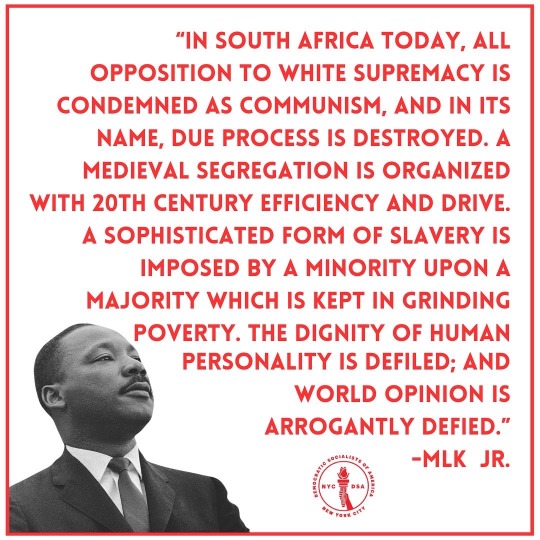
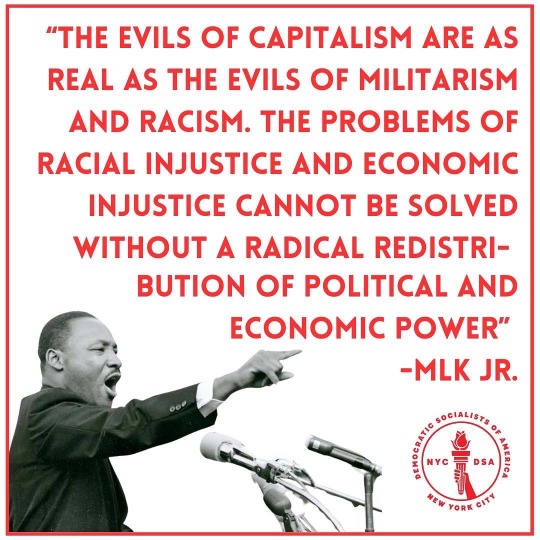
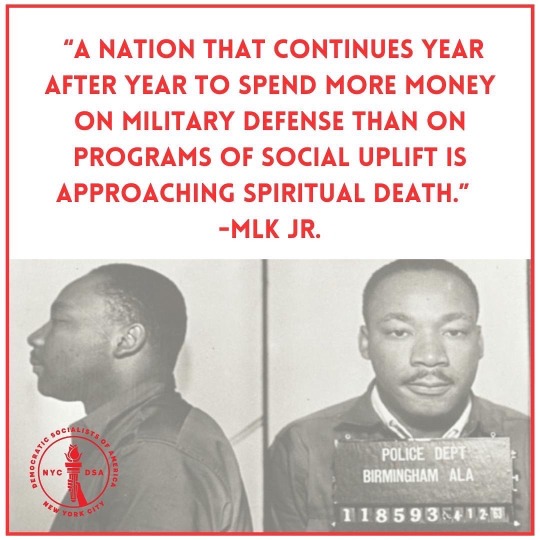
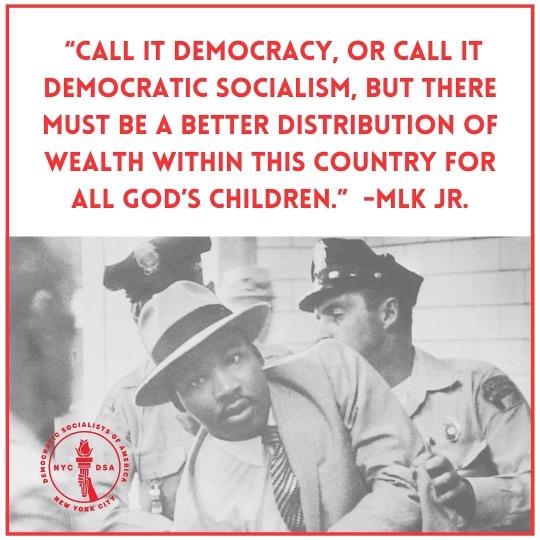
(X)
650 notes
·
View notes
Text
Younger folks, if all of you vote now you will completely change the political landscape of your future. It takes time, but you have to do it now.
Please check your local DSA (Democratic Socialists of America) and see if there's anything you can do. They have youth groups for high schoolers and college folks. Even if you are not old enough to vote, YOU CAN CHANGE THE GOVERNMENT OF YOUR FUTURE BY GETTING INVOLVED.
If you are unhappy with the way things are, vote and GET INVOLVED to create change. Small efforts can go a long way!
The more damage that is done, the harder and longer it'll take. VOTE.
107 notes
·
View notes
Text
The new globalism is global labor

For the rest of May, my bestselling solarpunk utopian novel THE LOST CAUSE (2023) is available as a $2.99, DRM-free ebook!

Depending on how you look at it, I either grew up in the periphery of the labor movement, or atop it, or surrounded by it. For a kid, labor issues don't really hold a lot of urgency – in places with mature labor movements, kids don't really have jobs, and the part-time jobs I had as a kid (paper route, cleaning a dance studio) were pretty benign.
Ironically, one of the reasons that labor issues barely registered for me as a kid was that my parents were in great, strong unions: Ontario teachers' unions, which protected teachers from exploitative working conditions and from retaliation when they advocated for their students, striking for better schools as well as better working conditions.
Ontario teachers' unions were strong enough that they could take the lead on workplace organization, to the benefit of teachers at every part of their careers, as well as students and the system as a whole. Back in the early 1980s, Ontario schools faced a demographic crisis. After years of declining enrollment, the number of students entering the system was rapidly increasing.
That meant that each level of the system – primary, junior, secondary – was about to go through a whipsaw, in which low numbers of students would be followed by large numbers. For a unionized education workforce, this presented a crisis: normally, a severe contraction in student numbers would trigger layoffs, on a last-in, first-out basis. That meant that layoffs loomed for junior teachers, who would almost certainly end up retraining for another career. When student numbers picked up again, those teachers wouldn't be in the workforce anymore, and worse, a lot of the senior teachers who got priority during layoffs would be retiring, magnifying the crisis.
The teachers' unions were strong, and they cared about students and teachers, both those at the start of their careers and those who'd given many years of service. They came up with an amazing solution: "self-funded sabbaticals." Teachers with a set number of years of seniority could choose to take four years at 80% salary, and get a fifth year off at 80% salary (actually, they could take their year off any time from the third year on).
This allowed Ontario to increase its workforce by about 20%, for free. Senior teachers got a year off to spend with their families, or on continuing education, or for travel. Junior teachers' jobs were protected. Students coming into the system had adequate classroom staff, in a mix of both senior and junior teachers.
This worked great for everyone, including my family. My parents both took their four-over-five year in 1983/84. They rented out our house for six months, charging enough to cover the mortgage. We flew to London, took a ferry to France, and leased a little sedan. For the next six months, we drove around Europe, visiting fourteen countries while my parents homeschooled us on the long highway stretches and in laundromats. We stayed in youth hostels and took a train to Leningrad to visit my family there. We saw Christmas Midnight Mass at the Vatican and walked around the Parthenon. We saw Guernica at the Prado. We visited a computer lab in Paris and I learned to program Logo in French. We hung out with my parents' teacher pals who were civilian educators at a Canadian Forces Base in Baden-Baden. I bought an amazing hand-carved chess set in Seville with medieval motifs that sung to my D&D playing heart. It was amazing.
No, really, it was amazing. Unions and the social contract they bargained for transformed my family's life chances. My dad came to Canada as a refugee, the son of a teen mother who'd been deeply traumatized by her civil defense service as a child during the Siege of Leningrad. My mother was the eldest child of a man who, at thirteen, had dropped out of school to support his nine brothers and sisters after the death of his father. My parents grew up to not only own a home, but to be able to take their sons on a latter-day version of the Grand Tour that was once the exclusive province of weak-chinned toffs from the uppermost of crusts:
https://en.wikipedia.org/wiki/Grand_Tour
My parents were active in labor causes and in their unions, of course, but that was just part of their activist lives. My mother was a leader in the fight for legal abortion rights in Canada:
https://www.flickr.com/photos/doctorow/8882641733
My dad was active in party politics with the New Democratic Party, and both he and my mother were deeply involved with the fight against nuclear arms proliferation, a major issue in Canada, given our role in supplying radioisotopes to the US, building key components for ICBMs, testing cruise missiles over Labrador, and our participation in NORAD.
Abortion rights and nuclear arms proliferation were my own entry into political activism. When I was 13, I organized a large contingent from my school to march on Queen's Park, the seat of the Provincial Parliament, to demand an end to Ontario's active and critical participation in the hastening of global nuclear conflagration:
https://www.flickr.com/photos/doctorow/53616011737/
When I got a little older, I started helping with clinic defense and counterprotests at the Morgentaler Clinic and other sites in Toronto that provided safe access to women's health, including abortions:
https://www.cbc.ca/news/canada/morgentaler-honoured-by-order-of-canada-federal-government-not-involved-1.716775
My teens were a period of deepening involvement in politics. It was hard work, but rewarding and fundamentally hopeful. There, in the shadow of imminent nuclear armageddon, there was a role for me to play, a way to be more than a passive passenger on a runaway train, to participate in the effort to pull the brake lever before we ran over the cliff.
In hindsight, though, I can see that even as my activism intensified, it also got harder. We struggled more to find places to meet, to find phones and computers to use, to find people who could explain how to get a permit for a demonstration or to get legal assistance for comrades in jail after a civil disobedience action.
What I couldn't see at the time was that all of this was provided by organized labor. The labor movement had the halls, the photocopiers, the lawyers, the experience – the infrastructure. Even for campaigns that were directly about labor rights – campaigns for abortion rights, or against nuclear annihilation – the labor movement was the material, tangible base for our activities.
Look, riding a bicycle around all night wheatpasting posters to telephone poles to turn out people for an upcoming demonstration is hard work, but it's much harder if you have to pay for xeroxing at Kinko's rather than getting it for free at the union hall. Worse, the demonstration turnout suffers more because the union phone-trees and newsletters stop bringing out the numbers they once brought out.
This was why the neoliberal project took such savage aim at labor: they understood that a strong labor movement was foundation of antiimperialist, antiracist, antisexist struggles for justice. By dismantling labor, the ruling class kicked the legs out from under all the other fights that mattered.
Every year, it got harder to fight for any kind of better world. We activist kids grew to our twenties and foundered, spending precious hours searching for a room to hold a meeting, leaving us with fewer hours to spend organizing the thing we were meeting for. But gradually, we rebuilt. We started to stand up our own fragile, brittle, nascent structures that stood in for the mature and solid labor foundation that we'd grown up with.
The first time I got an inkling of what was going on came in 1999, with the Battle of Seattle: the mass protests over the WTO. Yes, labor turned out in force for those mass demonstrations, but they weren't its leaders. The militancy, the leadership, and the organization came out of groups that could loosely be called "post-labor" – not in the sense that they no longer believed in labor causes, but in the sense that they were being organized outside of traditional labor.
Labor was in retreat. Five years earlier, organized labor had responded to NAFTA by organizing against Mexican workers, rather than the bosses who wanted to ship jobs to Mexico. It wasn't unusual to see cars in Ontario with CAW bumper stickers alongside xenophobic stickers taking aim at Mexicans, not bosses. Those were the only workers that organized labor saw as competitors for labor rights: this was also the heyday of "two-tier" contracts, which protected benefits for senior workers while leaving their junior comrades exposed to bosses' most sadistic practices, while still expecting junior workers to pay dues to a union that wouldn't protect them:
https://pluralistic.net/2021/11/25/strikesgiving/#shed-a-tier
Two-tier contracts were the opposite of the solidarity that my parents' teachers' union exhibited in the early 1980s; blaming Mexican workers for automakers' offshoring was the opposite of the solidarity that built transracial and international labor power in the early days of the union movement:
https://unionhall.aflcio.org/bloomington-normal-trades-and-labor-assembly/labor-culture/edge-anarchy-first-class-pullman-strike
As labor withered under a sustained, multi-decades-long assault on workers' rights, other movements started to recapitulate the evolution of early labor, shoring up fragile movements that lacked legal protections, weathering setbacks, and building a "progressive" coalition that encompassed numerous issues. And then that movement started to support a new wave of labor organizing, situating labor issues on a continuum of justice questions, from race to gender to predatory college lending.
Young workers from every sector joined ossified unions with corrupt, sellout leaders and helped engineer their ouster, turning these dying old unions into engines of successful labor militancy:
https://theintercept.com/2023/04/07/deconstructed-union-dhl-teamsters-uaw/
In other words, we're in the midst of a reversal of the historic role of labor and other social justice movements. Whereas once labor anchored a large collection of smaller, less unified social movements; today those social movements are helping bring back a weakened and fragmented labor movement.
One of the key organizing questions for today is whether these two movements can continue to co-evolve and, eventually, merge. For example: there can be no successful climate action without climate justice. The least paid workers in America are also the most racially disfavored. The gender pay-gap exists in all labor markets. For labor, integrating social justice questions isn't just morally sound, it's also tactically necessary.
One thing such a fusion can produce is a truly international labor movement. Today, social justice movements are transnational: the successful Irish campaign for abortion rights was closely linked to key abortion rights struggles in Argentina and Poland, and today, abortion rights organizers from all over the world are involved in mailing medication abortion pills to America.
A global labor movement is necessary, and not just to defeat the divide-and-rule tactics of the NAFTA fight. The WTO's legacy is a firmly global capitalism: workers all over the world are fighting the same corporations. The strong unions of one country are threatened by weak labor in other countries where their key corporations seek to shift manufacturing or service delivery. But those same strong unions are able to use their power to help their comrades abroad protect their labor rights, depriving their common adversary of an easily exploited workforce.
A key recent example is Mercedes, part of the Daimler global octopus. Mercedes' home turf is Germany, which boasts some of the strongest autoworker unions in the world. In the USA, Mercedes – like other German auto giants – preferentially manufactures its cars in the South, America's "onshore-offshore" crime havens, where labor laws are both virtually nonexistent and largely unenforced. This allows Mercedes to exploit and endanger a largely Black workforce in a "right to work" territory where unions are nearly impossible to form and sustain.
Mercedes just defeated a hard-fought union drive in Vance, Alabama. In part, this was due to admitted tactical blunders from the UAW, who have recently racked up unprecedented victories in Tennessee and North Carolina:
https://paydayreport.com/uaw-admits-digital-heavy-organizing-committee-light-approach-failed-them-in-alabama-at-mercedes/
But mostly, this was because Mercedes cheated. They flagrantly violated labor law to sabotage the union vote. That's where it gets interesting. German workers have successfully lobbied the German parliament for the Supply Chain Act, an anticorruption law that punishes German companies that violate labor law abroad. That means that even though the UAW just lost their election, they might inflict some serious pain on Mercedes, who face a fine of 2% of their global annual revenue, and a ban on selling cars to the German government:
https://pluralistic.net/2024/04/10/an-injury-to-one/#is-an-injury-to-all
This is another way reversal of the post-neoliberal era. Whereas once the US exported its most rapacious corporate practices all over the world, today, global labor stands a chance of exporting workers' rights from weak territories to strong ones.
Here's an American analogy: the US's two most populous states are California and Texas. The policies of these states ripple out over the whole country, and even beyond. When Texas requires textbooks that ban evolution, every pupil in the country is at risk of getting a textbook that embraces Young Earth Creationism. When California enacts strict emission standards, every car in the country gets cleaner tailpipes. The WTO was a Texas-style export: a race to the bottom, all around the world. The moment we're living through now, as global social movements fuse with global labor, are a California-style export, a race to the top.
This is a weird upside to global monopoly capitalism. It's how antitrust regulators all over the world are taking on corporations whose power rivals global superpowers like the USA and China: because they're all fighting the same corporations, they can share tactics and even recycle evidence from one-another's antitrust cases:
https://www.eff.org/deeplinks/2024/05/big-tech-eu-drop-dead
Look, the UAW messed up in Alabama. A successful union vote is won before the first ballot is cast. If your ground game isn't strong enough to know the outcome of the vote before the ballot box opens, you need more organizing, not a vote:
https://pluralistic.net/2023/04/23/a-collective-bargain/
But thanks to global labor – and its enemy, global capitalism – the UAW gets another chance. Global capitalism is rich and powerful, but it has key weaknesses. Its drive to "efficiency" makes it terribly vulnerable, and a disruption anywhere in its supply chain can bring the whole global empire to its knees:
https://pluralistic.net/2023/09/21/eight-and-skate/#strike-to-rule
American workers – especially swing-state workers who swung for Trump and are leaning his way again – overwhelmingly support a pro-labor agenda. They are furious over "price gouging and outrageous corporate profits…wealthy corporate CEOs and billionaires [not] paying what they should in taxes and the top 1% gaming the system":
https://www.americanfamilyvoices.org/_files/ugd/d4d64f_6c3dff0c3da74098b07ed3f086705af2.pdf
They support universal healthcare, and value Medicare and Social Security, and trust the Democrats to manage both better than Republicans will. They support "abortion rights, affordable child care, and even forgiving student loans":
https://prospect.org/politics/2024-05-20-bidens-working-class-slump/
The problem is that these blue-collar voters are atomized. They no longer meet in union halls – they belong to gun clubs affiliated with the NRA. There are enough people who are a) undecided and b) union members in these swing states to defeat Trump. This is why labor power matters, and why a fusion of American labor and social justice movements matters – and why an international fusion of a labor-social justice coalition is our best hope for a habitable planet and a decent lives for our families.

If you'd like an essay-formatted version of this post to read or share, here's a link to it on pluralistic.net, my surveillance-free, ad-free, tracker-free blog:
https://pluralistic.net/2024/05/20/a-common-foe/#the-multinational-playbook
#pluralistic#mercedes#germany#trustbusting#apple#eu#south korea#japan#uk#competition and markets authority#dma#dsa#germany supply chain act#alabama#bafa
212 notes
·
View notes
Text
love doing a pronoun circle and somebody says "[pronouns] are fine fine i guess" what do you mean fine you guess? have you tried anything else...
would you like to.....
47 notes
·
View notes
Text
I get it! I want a party that's further left too!
But if you're going to be like "It's time to abandon the Democrats." maybe you should have an alternative. Perhaps something to show for your 8 years of "organizing".
#organize a viable alternative!#there should be DSA and Green candidates running for every city council and state legislature#and yet...#I'm not going to consider your party 'viable' if you hold a dozen local offices *nationwide* but run in every presidential election#get your fucking head right
35 notes
·
View notes
Text

The party sets out for adventure -- Ugurcan Yüce cover for The Dark Eye introductory box set, Schmidt Spiele -- Schmidt France version "L'Œil noir;" originally released in German as "Das Schwarze Auge" (DSA). This art has been attributed to a second alternative version of the 1984 1st edition, and to the 1988 2nd edition.
#The Dark Eye#Ugurcan Yuce#Ugurcan Yüce#Das Schwarze Auge#l'oeil noir#JDR#jeu de role#jeu de rôle#L'Œil noir#DSA#Initiation au Jeu d'Aventure#fantasy RPG#adventuring party#castle#fantasy castle#1980s
176 notes
·
View notes
Text
Hey, if you're feeling despondent about the election and are looking for a way to start channeling that into something, I have a suggestion for you! This is a local NYC thing, but you can still support from outside the city!

Eric Adams' (mayor of NYC, cop, unregistered foreign agent for Turkey according to the FBI, and all round shitty person) term is up soon. The Democratic primary for mayor will be in the spring, and the DSA (Democratic Socialists of America, the largest socialist organization in the country) has a candidate in the running!
NY State Assembly Member Zohran Mamdani is a socialist, an immigrant, and would be the first muslim mayor of NYC. Key policies of his campaign include improving our deteriorating public transportation (have you benefitted from the free bus lines in NYC? That was him!), making housing affordable in NYC by freezing rent stabilized housing (meaning that for the duration of his term, rent for rent stabilized housing will not go up) and building new affordable housing on publicly-owned land, and free universal childcare with higher pay for childcare workers.
As an assembly member, Zohran has consistently supported unions, worked to fund public universities, supported green energy initiatives, and criticized police misconduct.
Significantly, he is staunchly pro-Palestine. He introduced the "Not on Our Dime" bill, which targets "charitable" organizations in NY that are funneling money into Israel. Under this bill, organizations who send money to Israel would no longer be able to claim non-profit status and could actually incur major fines. In November of 2023, he also participated in a five-day hunger strike in support of an immediate ceasefire.
Zohran is an amazing candidate, and his candidacy is an incredible chance for leftist base-building in NYC. If you are concerned about splitting the vote and ending up with some centrist asshole candidate, fear not! NYC has ranked choice voting in primaries, which means you don't need to worry about splitting the vote!
If you can, consider donating to his campaign. NYC has a fund-matching program in mayoral elections, which means your donation will be worth eight times what you give. If you live in NYC, consider signing up to volunteer here.
And if you're interested in DSA more generally, here's our national website.

And just as a fun bonus, here he is after completing the NYC marathon lol

#politics#us politics#nyc#nyc politics#socialism#signal boost#zohran for nyc#zohran mamdani#palestine#free palestine#I am neither an official representative of this campaign nor am I doing this as an official rep of DSA#I’m merely enthusiastic
49 notes
·
View notes
Text
For the love of god, do not let anyone convince you that Jill Stein is a serious person or serious candidate.
#If the green party were serious you'd see them down ballot#Not just running top of ticket people every four years#There's ways out of this two party mess#But they don't start at the top of the ticket and third parties who only work at that level are tax scams at best#And their lack of city council and state house seats kinda tells ya where the Greens are#Just mostly flashing back to a kid who sincerely told me they had belief in that party#And I get it and wish it were worthwhile to have such a thing#But alas#Somehow DSA is a more serious political organization than the Green party and I do not mean that kindly to either one
51 notes
·
View notes
Text
Hot older trans woman taking my blood, inviting me to the DSA meeting, wearing communist pins, including a qr code that leads to The Communist Manifesto online, "You're losing a lil colour in your lips hun, I'm gonna pull the needle out."
Me, feeling faint for the first time getting my blood drawn in my life, finally understanding the, 'hot older trans woman' trope that I've never gotten before, "Ca youu pehh my haair?"
#THIS IS MERELY A DRAMATIZATION#BUT GOOD LORDS GOOD FUCKING GODS JESUS CHRIST I WAS EMBARRASSED#THIS IS THE ONLY TIME IN MY LIFE I'VE BEEN THIS FLAVOUR OF FLUSTERED#SHE WAS HOT AND HAD TATTOOS AND WAS IMPLYING I SHOULD ATTEND THE LOCAL DSA MEETING#SHE WAS SO PRETTY I KINDA FEEL LIKE MY FACE WAS LIT ON FIRE#WORSE YET SHE COULDN'T TAKE ALL THE BLOOD SHE NEEDED SO SHE HAD TO GO GET SOMEONE ELSE BECAUSE SHE HAD POKED ME TWICE#WHAT IF I EXPLODED HUH?#the devil speaks
31 notes
·
View notes
